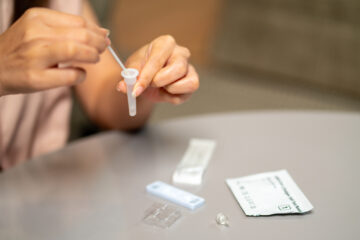The Centers for Disease Control and Prevention (CDC) has reported that updated COVID-19 booster shots significantly reduce the risk of hospitalization. The report, which was based on data from the United Kingdom, found that the bivalent booster shot, which combines protection against the original strain of the virus and the Delta variant, reduced the risk of hospitalization by 80%.
According to the CDC, the data from the United Kingdom supports the need for booster shots as the Delta variant, first identified in India, is becoming more dominant in the United States. The report also states that the bivalent booster shot is more effective than a single-dose booster shot against the Delta variant.
“This new data from the United Kingdom provides strong evidence of the real-world effectiveness of the bivalent booster shot in preventing severe illness and hospitalization,” said Dr. Rochelle Walensky in a statement. “It reinforces the importance of continuing to get vaccinated and receiving booster shots.”
The report also found that the bivalent booster shot was effective in reducing the risk of hospitalization among all age groups, including older adults who are at a higher risk of severe illness and hospitalization.
The CDC recommends that individuals who have received the Pfizer-BioNTech or Moderna COVID-19 vaccine should receive a booster shot 6 to 8 weeks after the second dose. The agency also advises individuals who have received the Johnson & Johnson COVID-19 vaccine to receive a booster shot 6 to 8 weeks after the first dose.
In conclusion, The Centers for Disease Control and Prevention (CDC) has reported that updated COVID-19 booster shots significantly reduce the risk of hospitalization. The report, which was based on data from the United Kingdom, found that the bivalent booster shot, which combines protection against the original strain of the virus and the Delta variant, reduced the risk of hospitalization by 80%. The CDC recommends that individuals who have received the Pfizer-BioNTech or Moderna COVID-19 vaccine should receive a booster shot 6 to 8 weeks after the second dose. The agency also advises individuals who have received the Johnson & Johnson COVID-19 vaccine to receive a booster shot 6 to 8 weeks after the first dose.




